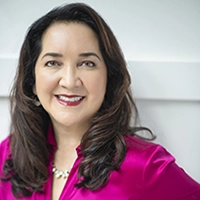English with Secondary Education Concentration
This major provides a specialization in English language and literature while preparing graduates to teach in secondary classrooms.
Additional Requirements: 9-20 credits
History Elective: 3 credits
Science Electives: 6-8 credits
Foreign Language: 0-9 credits
General Education Core Requirements and remaining Unrestricted Electives: 21-32 credits
Minimum credits required for graduation: 120
Courses listed below fulfill Area of Inquiry requirements:
Aesthetic
ENG 209: Introduction to Literature
Moral and Ethical
ED 494: Professional Standards & Ethics
Multicultural
ED 219: Supporting Learner Variability
Psychological and Societal
PSYC 101: Psychological Perspectives
| Course Code | Course Title | Credits |
|---|---|---|
| Core Courses | ||
| ENG208 | The Structure of the English Language | 3 |
| ENG209 | Intro to Literature & Literary Studies | 3 |
| ENG210 | Survey of American Literature | 3 |
| ENG218 | British Literature | 3 |
| ENG304 | Stories of Origin | 3 |
| ENG312 | Literature of Postcolonial World | 3 |
| ENG313 | American Multiethnic Literature | 3 |
| HUM419 | Seminar in Hum: Readings & Research | 3 |
| HUM420 | Seminar in Humanities | 3 |
| Secondary Education Requirements | ||
| ED109 | Invitation to Teaching | 1 |
| ED110 | Teaching & Learning in American Schools | 4 |
| ED210 | Reading & Writing Across the Curriculum | 4 |
| ED219 | Supporting Learner Variability | 4 |
| ED308 | Responsive Teaching in Secondary Schools | 3 |
| ED309 | Sheltered English Immersion | 3 |
| ED433 | Pre-practicum: Secondary English | 3 |
| ED482 | Practicum: Secondary English | 9 |
| ENG212 | Literature for Young Adults | 3 |
| PSYC101 | Psychological Perspectives | 3 |
| PSYC223 | Adolescent Psychology | 3 |
| Choose 3 from the following: | ||
| ENG211 | Modern Drama | 3 |
| ENG214 | Special Topics in Literature | 3 |
| ENG216 | The Mystery Novel | 3 |
| ENG217 | Contemporary Literature | 3 |
| ENG222 | Lyric Poetry | 3 |
| ENG224 | Film & Literature | 3 |
| ENG225 | The Short Story | 3 |
| ENG340 | Classics of World Literature | 3 |
Additional Requirements: 9-20 credits
History Elective: 3 credits
Science Electives: 6-8 credits
Foreign Language: 0-9 credits
General Education Core Requirements and remaining Unrestricted Electives: 21-32 credits
Minimum credits required for graduation: 120
Courses listed below fulfill Area of Inquiry requirements:
Aesthetic
ENG 209: Introduction to Literature
Moral and Ethical
ED 494: Professional Standards & Ethics
Multicultural
ED 219: Supporting Learner Variability
Psychological and Societal
PSYC 101: Psychological Perspectives
ED109 - Invitation to Teaching
This course explores careers in teaching beginning with the unifying question: Why should I become a teacher? Students examine their motivations to become teachers while they learn about college and state requirements and expectations.
ED110 - Teaching & Learning in American Schools
This course provides students pursuing or considering initial teacher licensure with an overview of the teaching profession. Students study and discuss history and philosophies of education systems, as well as current trends and issues. Massachusetts professional standards and requirements for licensure are explored. This course is a prerequisite for all other ED courses. Twenty-five hours of observation and tutoring in varied school settings are required. This is a presentation-intensive course.
ED206 - Early Literacy Teaching & Learning
This course explores literacy development in the preschool and early elementary years, including transitions to reading and writing, role of phonemic awareness and phonics in emergent and early literacy, varied assessments to measure developing literacy, instructional strategies and materials to support young learners. 25 pre-practicum hours. This is a writing intensive course. Prerequisite: ED 110.
ED208 - Elem Literacy Teaching & Learning
This course explores literacy development in the elementary years (through grade 6), including reading in content areas, fluency, reading/writing connections, varied assessments to measure literacy development, and instructional strategies and materials to support elementary learners through grade 6. 25 pre-practicum hours. Prerequisite: ED 110
ED219 - Supporting Learner Variability
This course introduces students to characteristics of learners with special needs in classroom and community settings. It focuses on principles of Universal Design for Learning in developing appropriate learning environments to meet the variability of all students in Pre-K through high school settings. A required 25-hour pre-practicum provides opportunities to teach and observe in area classrooms. Prerequisite: ED 110
ED330 - Pre-Internship Seminar
Usually taken in spring of the junior year, this seminar helps students identify objectives and potential sites for the internship. Prerequisites: Junior standing and department permission.
ED413 - Prof, Respon, & Ethics in Curr Instr
This capstone course integrates classroom practice, course work, and current developments in curriculum and instruction. The course includes a weekly seminar addressing problem solving in the field placement as well as current professional, ethical, moral, and legal issues facing professionals in education-related fields. Prerequisite: Senior standing or department permission. Co-requisite: ED 427.
ED427 - Curriculum & Instruction Internship
In this course, students complete a minimum of 150 hours in a supervised setting, arranged in ED 330 (Pre-internship seminar) related to their career interest. Prerequisites: Senior Standing and permission of Department Chair. Co-requisite: ED 413
HIST208 - Sub-Saharan Africa after 1800
This survey of sub-Saharan African history explores the ongoing story of African political, social, and economic developments from the post trans-Atlantic slave trade period to the present. The course includes treatment of the impact of European merchants, missionaries, and adventurers on Africa from the time immediately preceding imperialism and colonialism up through the emergence of nationalism and decolonization and liberation movements. The new nation-states, their post-colonial economies, and their developing systems of justice, education, and rule are investigated. Finally, topics such as soil erosion, disease, conservation, famine, and Africa’s relationships with the wider world are discussed. Prerequisite: a 100 level history course or ENG 102.
HIST209 - China from 1600 to Present
This course is a survey of modern Chinese history from the founding of the Qing Dynasty in the seventeenth century to Deng Xiaoping's economic reforms of the 1990s. Special attention will be paid to modernization, Western and Japanese imperialism in China, and the rise of Communism under Mao Zedong. In addition to learning about important milestones in Chinese history, students will also be introduced to aspects of Chinese art, culture, and women's issues through primary sources translated into English. This is a writing-intensive course. Prerequisite: a 100 level history course or ENG 102.
HIST211 - Middle East & Islamic World Since 1800
This course looks at the Middle East and its relations with the wider world, from the appearance of Napoleon to the present. Topics include attempts at reform and modernization in the Ottoman Empire; the impact of Western imperialism on the region as a whole; and twentieth-century developments in the area, including nationalism, pan-Arabism, pan-Islamism, the cult of the personality, coup, revolution, Zionism, and the Palestinian-Israeli confrontation. The economic and social impact of oil, the influence of fundamentalism, and the Great Power rivalry down through the position of the United States toward the area are investigated. The efforts of Iran to gain acceptance in/by the contemporary world is examined, as is the shifting attitude of Egypt toward modernity. Finally, connections between the region and the rest of the Islamic world are explored. This is a writing-intensive course. Prerequisite: a 100 level history course or ENG 102.
HIST212 - Mod Japan: Culture & History
This course is a survey of Japan's modernization from the fall of the "warring states" period to the economic bubble of the 1980s. Special attention will be paid to the contributions of the "early modern" Tokugawa Shogunate, the Meiji period of cultural borrowing from the West, and the cultural nationalism of the Japanese empire until 1945. In addition to learning about important milestones in Japanese history, students will be introduced to aspects of Japanese art and culture through a variety of primary and secondary sources and film clips. This is a presentation-intensive course. Prerequisite: a 100 level history course or ENG 102.
HIST330 - Europe & The World/ Age of Expansion
This course examines political, economic, social, scientific, and religious developments that contributed to European desire for land and power, and also to fantasies and phobias directed by European conquerors toward those whom they subdued and subjected to Western rule. The reaction toward the white Westerners on the part of those exploited is also explored. The period covered is from the mid-fifteenth century through the eighteenth century. Prerequisite: a 200 level history course or permission of instructor.

Claudia Rinaldi
Dean of Curricular Integration and Director of the RoseMary Fuss Teaching and Learning Center
Office: Brennan Library
Email: CRinaldi@lasell.edu


